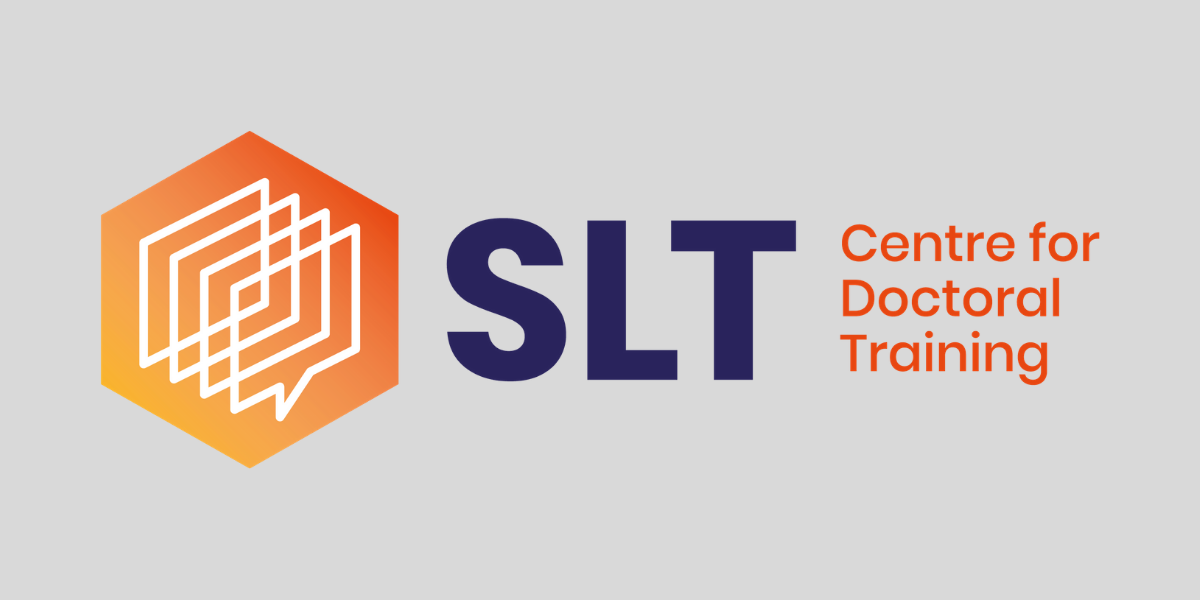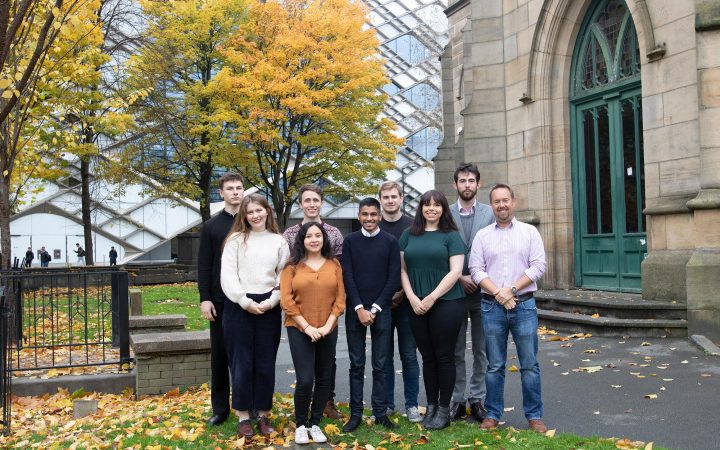
In 2019, the University of Sheffield opened its UKRI Centre for Doctoral Training (CDT) in Speech and Language Technologies (SLT) and their Applications. On Tuesday 15 and Wednesday 16 June, you can see a showcase of the Centre’s PhD work as well as hear from leading researchers in the field at the CDT’s inaugural annual conference. And even if you can’t make the online event, the Centre has some great opportunities available to businesses that want to adopt or develop speech or language technologies. Read on for more details.
The UKRI Centre for Doctoral Training (CDT) in Speech and Language Technologies (SLT) and their Applications is a collaboration between UKRI (the UK’s national academic research funder), The University of Sheffield, and industry partners.
Through an eight year funding period, approximately 60 PhD students across five cohorts will complete a unique four year training programme while researching the application of different technologies that process speech or written language.
Since launching in September 2019, the CDT has welcomed its first two cohorts of PhD students. They have started their projects working with a range of global companies including Apple, Amazon, 3M, Toshiba, Huawei, as well as Sheffield companies ZOO Digital and Tribepad. Areas of research into speech processing technologies include translations, how regional dialects affect speech recognition, and how sentiment can be extracted and analysed from speech.
Students who are researching written language technologies are focussing on things like social media and how businesses can analyse sentiment from vast quantities of data. They are also looking into ‘fake news’ and how false information distributed by seemingly trustworthy platforms can be identified.
Preparing students for a future in industry
The core focus of the Centre is to train students for a future in leadership and / or R&D roles in the AI and SLT industries. As well as research, the unique four year course covers engineering skills, leadership, innovation, entrepreneurship, and the complex area of ethics and responsibility to society when using SLT.
Dr Stuart Wrigley, the Centre’s Operations and Business Development Manager, explains:
“Traditionally a PhD is seen as a stepping stone to an academic post, but we’re focussed on getting the majority of our students to support UK industry. Speech and language technology is a rapidly growing sector with huge revenues and there is a massive opportunity for the UK to grow its position as a leading innovator in AI, particularly in speech and language.
“So, training a significant number of highly qualified, highly technical-proficient graduates, who have a destiny to go into industry rather than academia is a massive goal for us.”

Opportunities to work with the CDT
Next year, the Centre will launch the ‘SLT HUB’ – a student-led consultancy available to businesses that have heard about SLT and want to better understand how it can benefit them. Students will review the business and the technologies available in order to deliver a set of recommendations for adopting SLT, all free of charge to the client.
This and the option to work with a future PhD student are opportunities available to businesses in the city. Stuart says:
“There are another 13 very talented students joining the programme in September 2021 and we want each of those students to work with a company on a project. This can either be something the company has suggested themselves, in terms of how SLT can fit in their business, or it can be a project that one of our academics and the business can work up together.”
Whilst businesses are asked to co-sponsor students for their projects, these fees are reduced by more than half because of the UKRI funding.
Stuart adds,
“Businesses work with the students for four years, and can have them complete an internship too. They are also involved in the supervision of the research project, meaning they can have access to early results and outcomes which they can integrate into their processes.
“We are always looking for businesses to work with our students and it’s a great opportunity because it’s win-win. The students benefit from working with a great local company, and the company has access to a talented research student and their supervisory team – who are world-leading academics – on a project that is directly relevant to what the company wants to do.”
See for yourself at the Annual Conference
The conference will showcase the research of the CDT’s PhD students as well as those in the University’s Speech and Hearing (SpandH) and Natural Language Processing (NLP) research groups, who together constitute one of the largest groupings of SLT researchers in the UK.
There will be keynotes from leading international academics and practitioners, as well as a panel discussion exploring technical and ethical topics.
The conference is free to attend and takes place on Tuesday 15 and Wednesday 16 June. It is an online event and if you can’t attend the full two days, you can register and attend just the sessions that you are available for.
See the full programme and book your place here.
Interested, but can’t make the event?
There is lots of information about the UKRI Centre for Doctoral Training in Speech and Language Technologies and their Applications, on the website: slt-cdt.ac.uk.
If you would like to understand more about the opportunities open to businesses and whether you could work with a student, contact Stuart Wrigley on s.wrigley@sheffield.ac.uk or 0114 222 1880. Stuart is happy to answer questions and, once it is safe to do so, welcome visitors to the Centre to meet staff and students and to discuss their research.